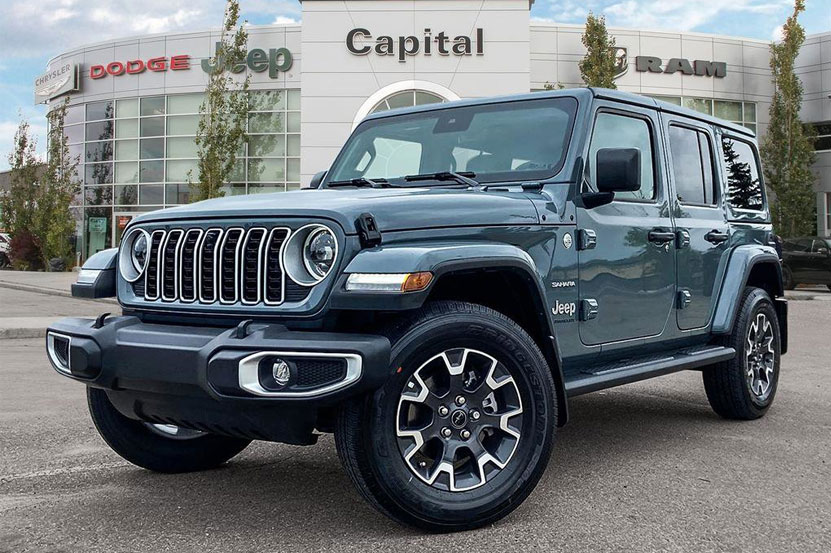The Jeep Wrangler is an iconic vehicle, known for its rugged design and off-road capabilities. It has been a favorite of adventurers and those who want a car that can handle rough terrain without a fuss. But for those considering owning one, the question that often comes up is, “Are Jeep Wranglers reliable?”
Jeep Wrangler’s Durability and Off-Road Prowess
The Jeep Wrangler shines when it comes to off-road performance. It’s built to tackle rocky trails, deep mud, and steep inclines that most vehicles wouldn’t even attempt. Thanks to its strong suspension system, sturdy build, and four-wheel-drive capabilities, the Wrangler can power through challenging conditions that would likely damage other cars.
This durability extends to the vehicle’s frame and undercarriage, which are designed to withstand tough conditions. It’s a vehicle meant to be driven hard, and many owners enjoy pushing it to its limits. That said, the durability doesn’t always translate to everyday reliability in terms of comfort and convenience.
Reliability in Daily Use
While the Jeep Wrangler is known for off-roading, it can be a mixed bag when it comes to daily driving. Many Wrangler owners report that the vehicle can feel bumpy and less smooth on highways compared to other SUVs. The Wrangler’s solid axles, designed for rugged environments, can cause a rougher ride on paved roads. If you’re looking for a vehicle that is comfortable for long highway drives, you might find the Wrangler a little lacking in that department.
Additionally, the fuel economy is not one of the Wrangler’s strong suits. The boxy design, which helps in off-road situations, also means it isn’t as aerodynamic as other vehicles. As a result, it tends to consume more fuel, which may not be ideal for people looking for a daily commuter car.
Mechanical Reliability
When it comes to mechanical reliability, Jeep Wranglers have a bit of a reputation for requiring frequent maintenance. According to many owners, while the Wrangler’s engine and core components are tough, some smaller components tend to wear out sooner than expected. Common issues include problems with electrical systems, steering components, and the transmission. However, newer models have improved in these areas, with manufacturers making efforts to address earlier reliability concerns.
The Wrangler’s mechanical reliability can also depend on how it’s used. Owners who use their Wranglers primarily for off-road adventures might find themselves needing more frequent repairs due to the extreme conditions. In contrast, those who use their Wranglers for regular commuting might experience fewer issues.
Longevity of Jeep Wranglers
Despite some complaints about mechanical issues, many Jeep Wranglers are known for their longevity. It’s not uncommon to see older models on the road, with many Wranglers surpassing 200,000 miles if properly maintained. Regular maintenance is crucial, though, especially for owners who use their vehicles in harsh conditions. This includes keeping up with oil changes and tire rotations and checking the suspension and undercarriage for damage after off-roading.
Owners who are willing to invest time and money into keeping their Jeep in good condition often find that it lasts for many years. This durability is one of the key reasons why the Wrangler has a loyal fan base.
Cost of Maintenance and Repairs
One of the concerns potential buyers might have is the cost of maintaining a Jeep Wrangler. Repairs can sometimes be on the higher end, especially if off-roading has caused wear and tear. Replacing components like the suspension, axles, or electrical systems can be costly. On the plus side, there are plenty of aftermarket parts available, and the Wrangler’s popularity means there are many mechanics familiar with the vehicle.
That said, it’s important to note that the maintenance costs might be higher compared to other vehicles in the same category, especially if you plan to take your Wrangler off-road frequently.
Safety and Modern Features
In terms of safety, Jeep Wranglers have improved over the years. Modern Wranglers now come equipped with features like rearview cameras, blind-spot monitoring, and electronic stability control. However, earlier models were not as advanced in terms of safety, so buyers looking at used Wranglers should keep this in mind.
Crash test ratings for the Wrangler have been a point of concern for some buyers. The boxy design and high center of gravity make it more prone to rollovers than other SUVs. However, newer models have been equipped with technology to help reduce the risk.
Owner Satisfaction
Despite some of the reliability concerns, Jeep Wrangler owners tend to be very satisfied with their vehicles. Many say the joy of off-roading and the rugged design far outweigh the issues they experience. For those who prioritize adventure and versatility over smooth rides and fuel efficiency, the Wrangler can be a perfect fit.
Owners also love the sense of community that comes with owning a Wrangler. There are many Jeep clubs and off-road events where owners can connect, share tips, and go on group adventures. The customizability of the Wrangler is another big plus—whether it’s adding a lift kit, new tires, or different roof options, owners have plenty of ways to make their Wrangler their own.
Final Verdict: Is the Jeep Wrangler Reliable?
In short, whether a Jeep Wrangler is reliable depends on what you’re looking for in a vehicle. If you need a tough, off-road-ready car that can handle extreme conditions, the Wrangler excels. Its longevity and ruggedness make it a great choice for adventurers. However, if you’re looking for a smooth, fuel-efficient ride with low maintenance costs, the Wrangler might not be the best option.
While it may require more upkeep than other SUVs, its capability and strong fan base make it a beloved choice for those who enjoy pushing their vehicle to its limits.

